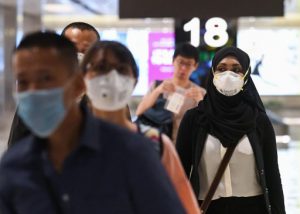Wuhan — The city authorities have reversed, within hours of it being announced, a decision to let certain non-residents of this coronavirus-hit capital of China’s Hubei province who have been under quarantine over the past month to leave from Monday (Feb 24).
This is because the decision had been made without the approval of higher authorities. The initial statement had been posted on Weibo, one of the biggest social media platforms in the country. It had stated that those who wanted to leave had to apply to the city authorities.
Wuhan, with a population of 11 million, has been under lockdown since Jan 23 to prevent the spread of the Covid-19 virus.
The earlier statement had said that were strict measures over who exactly would be allowed to leave the city. Only non-residents would be allowed to do so. They had to have no symptoms of the disease and should not have been in contact with any person who had tested positive for the virus.
The move would also have allowed Wuhan residents to leave the city for specific reasons. For example, for treatment for other medical conditions, or because they were employed to do epidemic prevention work elsewhere.
The city had planned to require the departures to be staggered. Each car would carry only two people at a time, including the driver. On arrival at their destination, these people would have had to report to the local authorities and monitor their health for two weeks.


The city government’s move to allow certain groups of people to leave had been met with scepticism in some quarters.
The reversal of the plan to let certain non-residents to leave would be a setback for any people, including possibly Singaporeans, in the city unable to return home since the Covid-19 virus began to spread at the beginning of the year. /TISG

